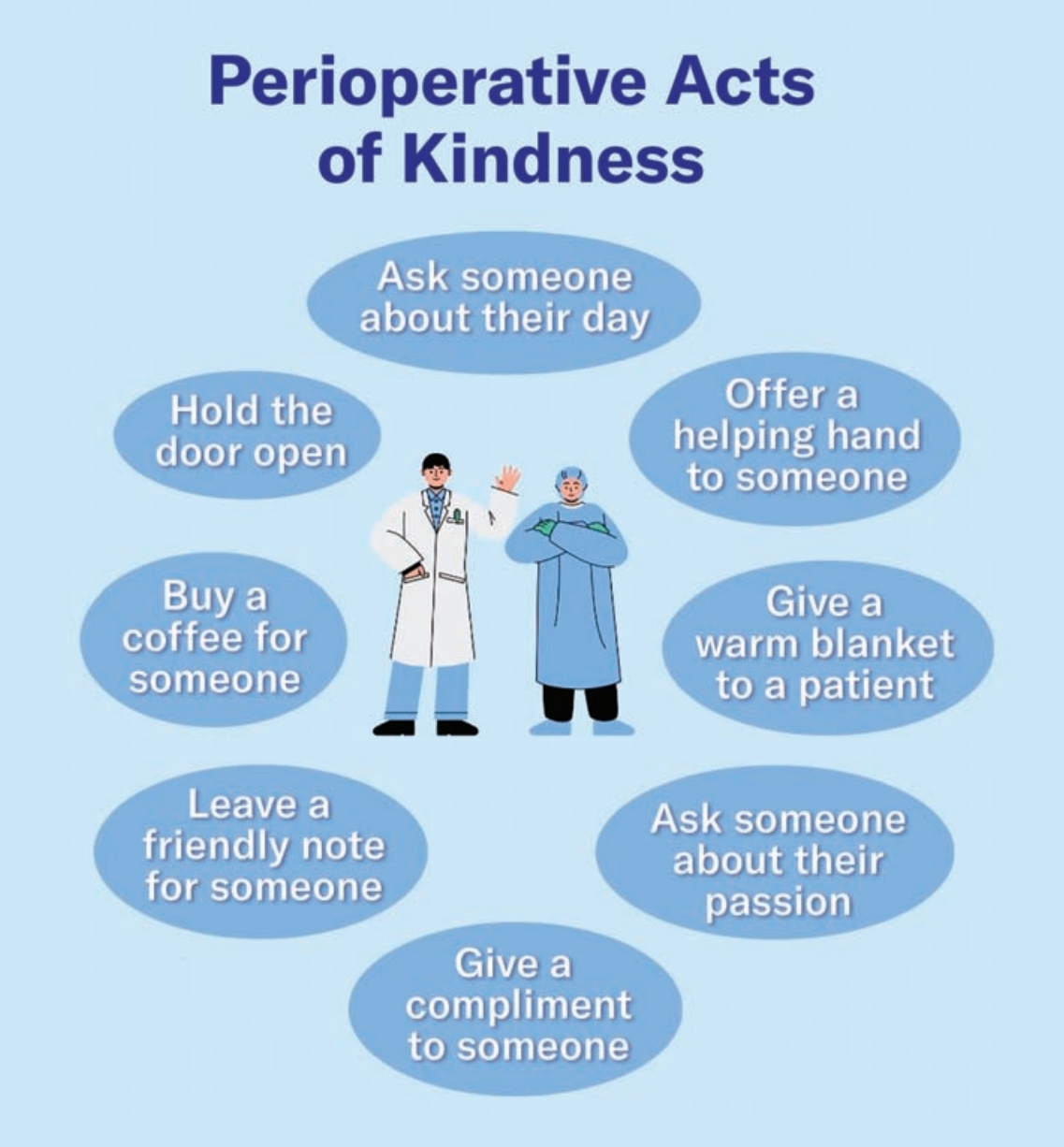WPLC: The science behind kindness: How CPR affects physician well-being
By Julie Crichton, MD, FASA, medical director for the HonorHealth Women Physicians Leadership Council (WPLC)
Perioperative teams, due to their high-stress environments and interactions, are especially vulnerable to irritability, burnout and fatigue. To combat these challenges, fostering a culture of support is crucial—particularly as we navigate overwhelming patient volumes, fast turnovers, sicker and older patients, complex healthcare systems, and challenges from insurance companies and colleagues.
The Compassion, Patience and Respect (CPR) model
A proposed three-step model published in ASA Monitor’s article, “World Kindness Day 2024: Let’s Make Kindness Contagious,” offers an easy way to remember how to initiate kindness and support in the workplace through CPR. This model emphasizes:
- Compassion: Understanding others’ perspectives.
- Patience: Actively listening to colleagues and patients.
- Respect: Acknowledging the worth of each individual.
 This approach aims to rejuvenate empathy and nurture a workplace where kindness can thrive. As an anesthesiologist, I strive to advocate for my patients and be a trusted ally throughout their time in the operating room. Offering small acts of kindness, such as a smile or a warm blanket, requires minimal time and effort but promises big rewards—for the patient, the provider and the entire healthcare system.
This approach aims to rejuvenate empathy and nurture a workplace where kindness can thrive. As an anesthesiologist, I strive to advocate for my patients and be a trusted ally throughout their time in the operating room. Offering small acts of kindness, such as a smile or a warm blanket, requires minimal time and effort but promises big rewards—for the patient, the provider and the entire healthcare system.
Here are some examples of simple acts of kindness:
The science behind kindness
“Perhaps you will forget tomorrow the kind words you say today, but the recipient may cherish them over a lifetime.” – Dale Carnegie
Kindness has significant rewards, both emotionally and neurologically. When people act kindly toward one another, the brain releases three chemicals: dopamine, serotonin and oxytocin. These neurochemicals are linked to pleasure, mood improvement and social bonding. According to Dr. Anna Lembke, Standford professor and author of “Dopamine Nation,” dopamine, the “feel-good” hormone, is linked to the brain’s pleasure and reward centers. While many seek this activation through technology, drugs or binges, we can achieve it naturally through simple acts of kindness.
Serotonin enhances mood and reduces stress, while oxytocin fosters feelings of respect and connection. Together, these endogenous chemicals improve mental health, reduce stress and foster workplace happiness—all through the simple practice of showing kindness to others.
Why kindness at work matters
Research shows that kindness at work is a stronger predictor of happiness than income. Employees who feel valued demonstrate greater engagement and commitment to both their roles and their organizations. When we prioritize kindness, we create purposeful work and a supportive environment that contributes to increased productivity and overall satisfaction throughout our organization.
World Kindness Day
As World Kindness Day approaches on Nov. 13, it’s important to remember that while in healthcare we may not control our external challenges, we can choose to foster kindness toward one another, ultimately improving workplace culture and our own happiness. Remember to practice your CPR!
“It takes courage to be kind.” – Maya Angelou
Reminder: Please join us from 5:30 to 7:30 p.m. on Tuesday, Nov. 12, for our annual WPLC Fall Reception, where we’ll announce this year’s Trailblazer Award recipient.
We also extend a warm welcome to the women physicians joining the HonorHealth family from Steward Health Care facilities in Arizona. We look forward to collaborating with you.
References
Kodack E, et al. World Kindness Day 2024: Let’s Make Kindness Contagious. ASA Monitor. 2024;88(10): 13-14. Doi: https://doi.org/10.1097/01.ASM.0001069360.54237.6e
